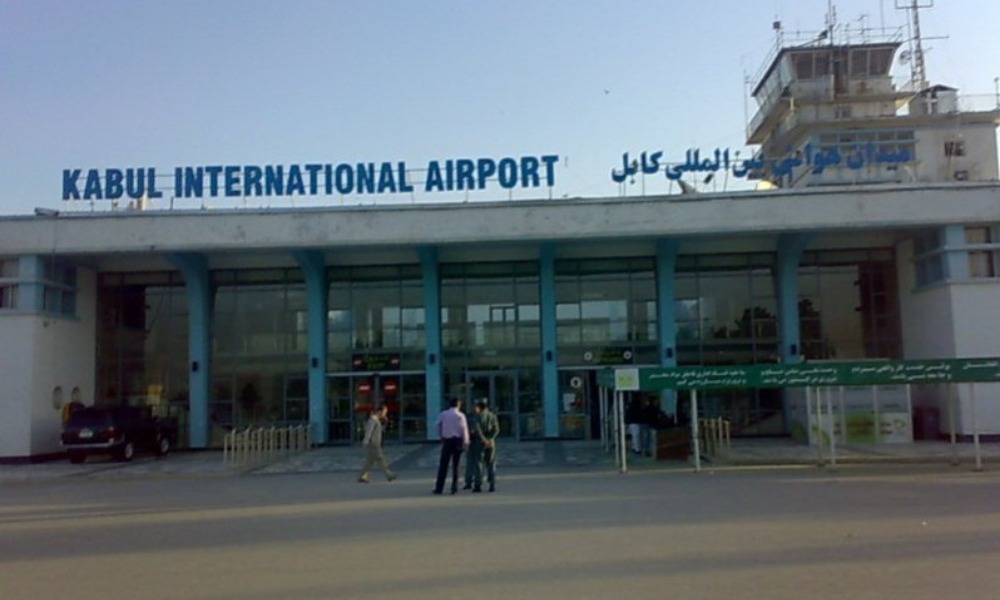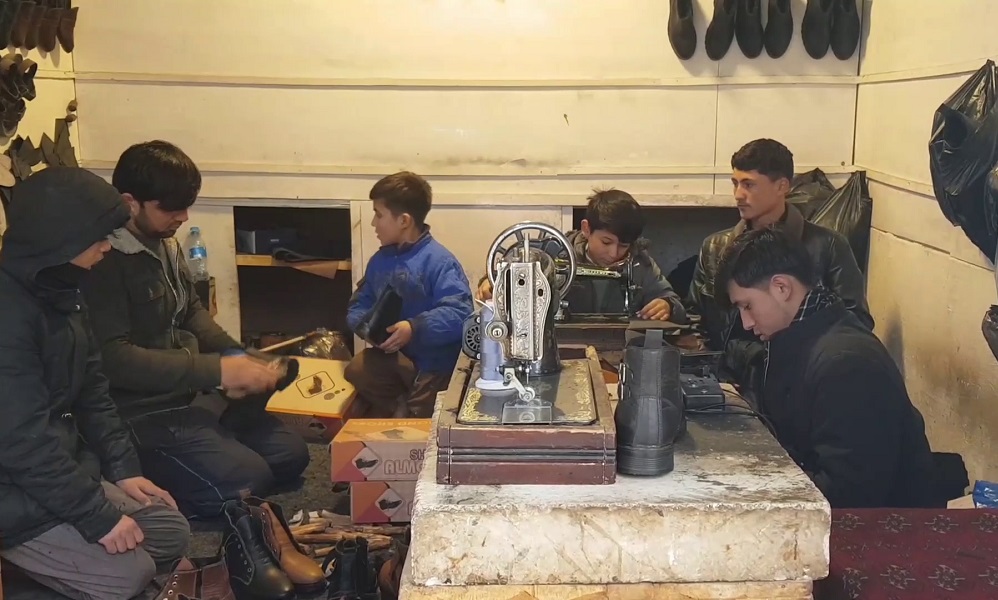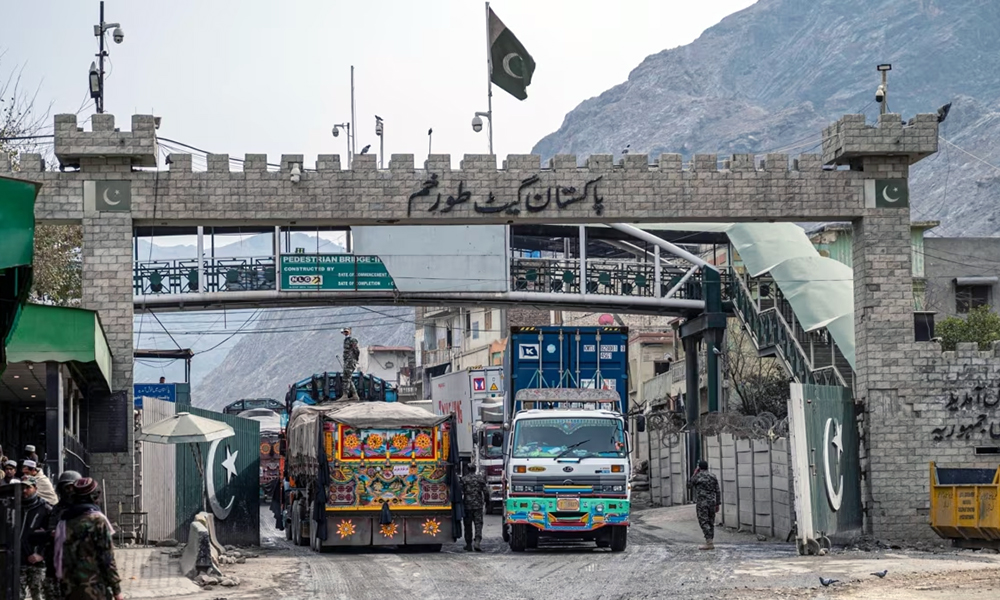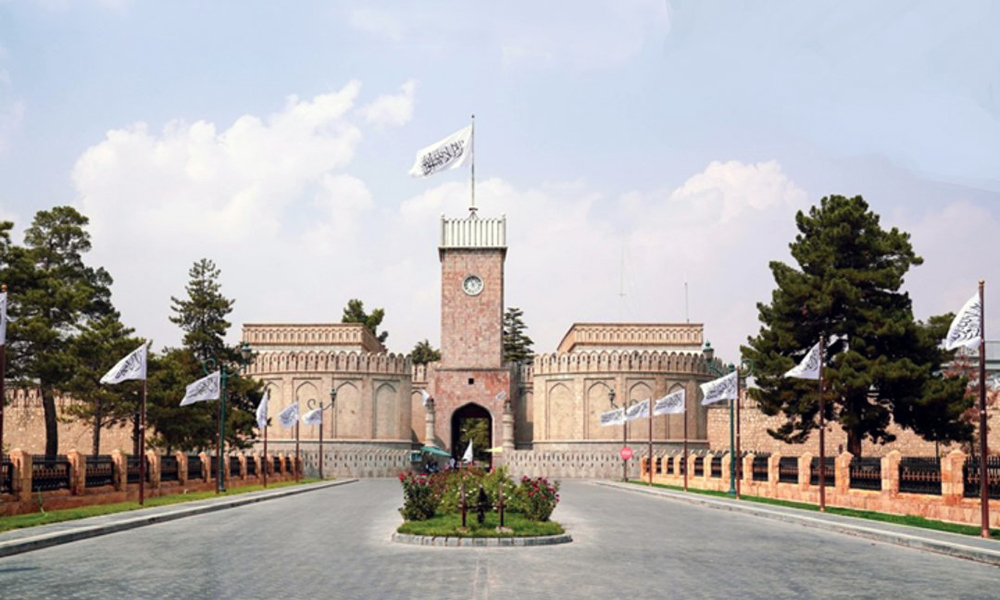Business
SIGAR urges tighter VIP control to stop cash smuggling through airport

Despite efforts by the Afghan government to reduce the flow of cash out of the country’s busiest international airport, significant control weaknesses continue to exist at Hamid Karzai International Airport in Kabul, the Special Inspector General for Afghanistan Reconstruction (SIGAR) reported Thursday.
Cash counting machines, which were funded by the US government, are not being used for the purposes intended and the only cash counting machine confirmed to be working is in the arrival entrance, instead of the departure area where strict cash controls are most needed to help prevent cash smuggling, SIGAR reported.
In addition, the machines lack connectivity to the Internet, which in turn prevents Afghan investigative authorities from tracking currency suspected of being laundered.
“The absence of fully functional and strategically positioned cash counting machines, and declaration forms in the VIP section along with the limited screening of VIP passengers – who are most likely to have large amounts of cash – severely limits the Afghan government’s ability to fully implement its anti-money laundering laws at the airport,” John F. Sopko, Special Inspector General for Afghanistan Reconstruction stated in the report.
To improve screening procedures at Hamid Karzai International Airport, SIGAR suggested the Afghan government take the following two actions:
1. Fully integrate cash counting machines with functioning Internet capability into the normal customs process both at the non-VIP and VIP terminals to better ensure that all declared and detected currency is counted, and serial numbers captured, for use by FinTRACA and its international partners.
2. Strengthen controls at the VIP terminal by requiring all VIP and VVIP passengers to fill out customs declaration forms, and have airport staff count any cash declared and send serial numbers to FinTRACA.
Sopko stated: “We provided a draft copy of this report to the [US] Department of Homeland Security (DHS) and Department of State (DOS) for comments on December 21, 2020, and the Afghan government for comments on December 22, 2020.
“DHS provided technical comments for incorporation in the report on January 8, 2021, which we
incorporated as appropriate. The Department of State informed SIGAR on January 8, 2021 that it does not have any technical comments.
“As of the publication of this report, the Afghan government did not provide any comment on the report nor on the matters for its consideration,” Sopko stated.
Business
Shoemaking industry in Takhar province facing stagnation

A number of shoemakers in northern Takhar province say that while their handmade shoes are of better quality than imported shoes, but still sales are down.
According to them, there were more than 20 shoe-making shops in the past, but now some have been closed due to the decline in sales.
The shoemakers make most of their shoes from leather. A number of industrialists say that this industry is now facing stagnation.
Abdul Raqib, a shoemaking factor owner, said: “The government should support us. Currently, we import soles. It can be made with good quality in Afghanistan, and we could even compete against Turkish shoes.”
Meraj, another shoemaking factory owner, said: “Shoe sales were higher in the republic era. There were military shoes. Sales have declined now, but we still thank Allah.”
Shoemakers make these shoes with basic tools and by hand, with 5 to 8 people working in each shop.
Javed, a shoemaker, said: “Our sales are not so good. We can make any type of shoe or slipper. We want the government to support us.”
A number of Takhar residents say that domestically produced shoes are of high quality and with lower price compared to imported shoes, so people prefer domestic products to foreign products.
Mir Ata, a resident of Takhar, said: “We are very happy about domestic shoes. People should buy it. They are of good quality.”
However, the officials of Takhar Industry and Commerce Department say that they are committed to support the industrialists.
Abdul Rahman Ghaznawi, provincial director of industry and commerce, said: “People prefer domestic shoes and slippers. Takhar’s products are sold in Kunduz, Baghlan and Badakhshan as well.”
Meanwhile, industrialists say that if the government supports them, they will be able to make the best products and can be more competitive.
Business
Daily truck clearances at Torkham drop from 400-500 to 5-10

Pakistan’s Sarhad Chamber of Commerce and Industry (SCCI) has said that daily truck clearances at Torkham crossing have declined from 400-500 to 5-10.
SCCI President Fazal Muqeem Khan said this at the signing ceremony of a memorandum of understanding (MoU) with the Pakistan-Afghanistan Joint Chamber of Commerce and Industry to promote bilateral trade and cooperation.
He said the volume of trade between Pakistan and Afghanistan had fallen from $3 billion to $1 billion annually.
Fazal Muqeem also highlighted the adverse impact of the 2% Infrastructure Development Cess (IDC) imposed by the Khyber-Pakhtunkhwa government on trade and transit.
Business
Turkish scholars, charity officials assess investment prospects in Afghanistan
Officials pledged to encourage Turkish investors to explore and capitalize on investment opportunities in Afghanistan

Afghanistan’s Acting Minister of Energy and Water, Mullah Abdul Latif Mansoor, met with a delegation of Turkish scholars and officials from the Adif Charity Foundation on Tuesday to discuss various political, religious, and social issues.
According to the Ministry of Energy and Water, Mullah Mansoor praised Adif’s humanitarian efforts in Afghanistan and highlighted the country’s ample resources for energy production.
He emphasized that Afghanistan currently offers a favorable environment for investment in all sectors, assuring the Turkish delegation of the Islamic Emirate’s commitment to ensuring the safety and security of investors and their assets.
In response, Adif officials pledged to encourage Turkish investors to explore and capitalize on investment opportunities in Afghanistan, signaling a potential boost in economic and developmental cooperation between the two nations.
-

 Sport5 days ago
Sport5 days agoZimbabwe’s opening ODI against Afghanistan abandoned
-

 World4 days ago
World4 days agoNorth Korean troops suffer 100 deaths, struggling in drone warfare, South Korea says
-

 Latest News2 days ago
Latest News2 days agoAfghan men must stand with women to support viable future of country: US envoy
-

 Latest News3 days ago
Latest News3 days agoTwo horror accidents on Kabul-Kandahar highway leave 52 dead
-

 Sport3 days ago
Sport3 days agoAfghanistan crush Zimbabwe by 232 runs in second ODI
-

 Regional5 days ago
Regional5 days agoIran’s president to make rare visit to Egypt for D-8 summit
-

 International Sports4 days ago
International Sports4 days agoLanka T10: Kandy Bolts in at 4th spot in playoffs after thrilling day
-

 World4 days ago
World4 days agoNATO takes over coordination of military aid to Kyiv from US, source says
























